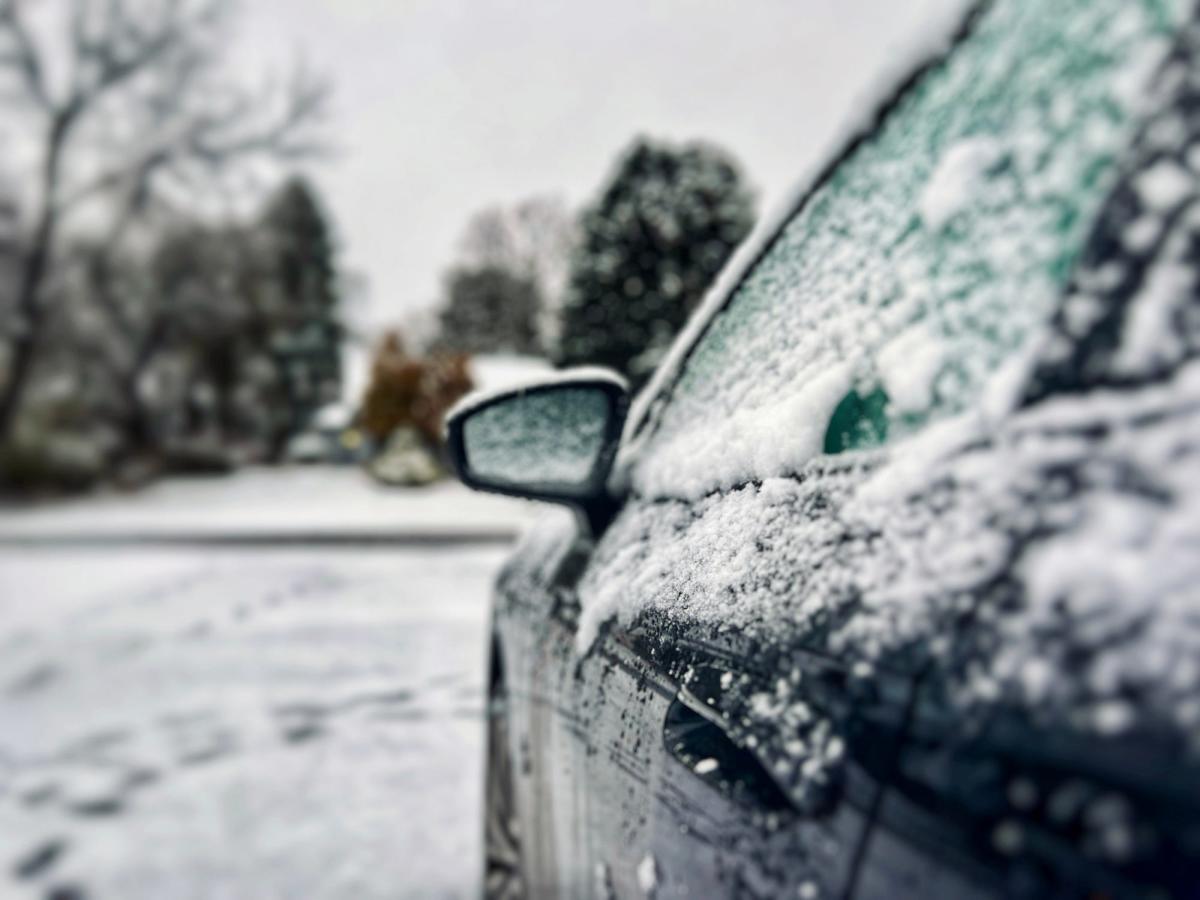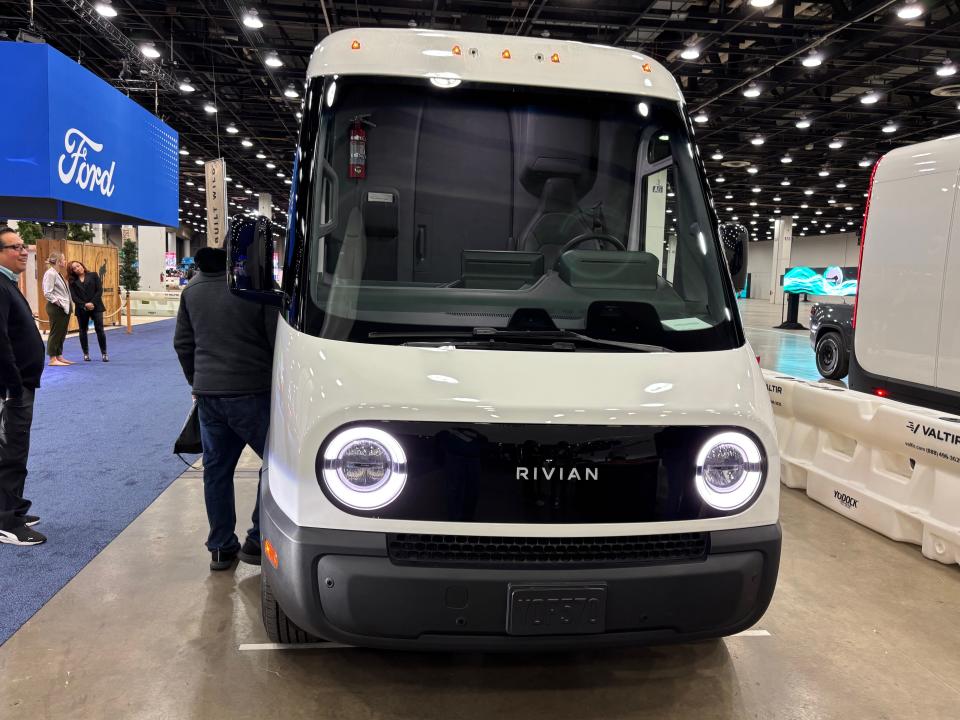
In the dead of Michigan’s extreme winters, leaving certain items in your vehicle can be downright dangerous.
While it can be tempting to leave certain items behind for the sake of convenience, with temperatures regularly plunging below freezing, it’s important to be mindful of what you leave behind.
Here’s a look at what Michigan drivers should avoid keeping in the car when the winter chill sets in.
Cell phones and tablets
Leaving your cell phone or tablet in the car during freezing temperatures can cause several issues including damage to the lithium ion batteries inside, which are highly sensitive to extreme cold, USA TODAY reports.
Advertisement
Advertisement
It is the “battery, battery, battery,” that is most vulnerable to the elements, says Roger Gurney, owner of Arctic Tech Solutions in Fairbanks, Alaska told USA TODAY.
Apple recommends operating iOS devices where the temperature is between 32 and 95 degrees, but says it’s fine to store the device at much colder temps — all the way down to minus 4 degrees. At those lower temperatures you’ll want to shut the phone off.
Samsung cites a similar operating range for its phones.
If your device gets too cold, certain features may be temporarily disabled, according to Apple.
Pop, beer, canned liquids
Leaving pop or beer cans in your car during freezing temperatures can lead to a messy and potentially hazardous situation. Water-based liquids expand when they freeze, which can cause the cans to burst or explode.
Advertisement
Advertisement
The freezing points of these beverages vary slightly, according to NJ.com:
-
Regular pop (with sugar): Freezes at approximately 30 degrees.
-
Diet pop and water: Freezes at 32 degrees.
-
Beer (5% alcohol by volume): Freezes around 27 degrees.
Musical instruments
Musical instruments can be pricey to replace, so leaving your kid’s wooden clarinet in the backseat during a snowstorm is a bad idea.
Because of the sensitivity of materials like wood and metal to temperature changes, the cold, dry air can lead to cracks and warping on your instrument. According to Yamaha MusicUSA, woodwind and string instruments are at high risk for cracking when they absorb water and contract.
Brass instruments can also freeze, leading to stuck valves and tuning slides.
If an instrument is left in a freezing car for a long period, try to make it warm up gradually.
Eyeglasses
Eyeglasses can be an expensive — and important — investment for those who need them. So it’s important to keep your glasses in a protected, appropriate space during extreme cold.
Advertisement
Advertisement
Leaving eyeglasses in a cold car can cause the lenses to crack or become brittle, according to Web Eye Care. Exposure to the extreme temperatures can also warp plastic frames, potentially damaging how your eyes align with the lenses in your glasses.
Eggs
Leaving eggs in your car is a no-no in any weather conditions. As the inside of the egg freezes and expands, the eggshell can crack and ultimately, make a mess when they’re thawed. If your frozen eggs crack, toss them. Keep the un-cracked ones frozen and move them to the refrigerator before use.
“These can be hard cooked successfully, but other uses may be limited. That’s because freezing causes the yolk to become thick and syrupy so it will not flow like an unfrozen yolk or blend very well with the egg white or other ingredients,” according to the U.S. Department of Agriculture Food Safety and Inspection Service.
According to Food and Wine, you can safely freeze whole eggs by beating them until blended and pouring them into tightly-sealed freezer containers for future use.
Canned foods
Letting a can of beans freeze allows for the water to freeze and expand in a similar way to beer and soda. The USDA advises that this can result in a broken seal, causing spoilage. If canned food freezes, allow it to thaw in a refrigerator.
Advertisement
Advertisement
“If the product doesn’t look and/or smell normal, throw it out. Do not taste it! If the seams have rusted or burst, throw the cans out immediately, wrapping the burst can in plastic and disposing the food where no one, including animals can get it,” according to the USDA.
Medication
If you head to the pharmacy in the cold temperatures, be sure to bring your medication bottles inside when you get home. According to Reuters, leaving your pills in the extreme cold (or heat) can significantly alter the effectiveness of prescription and over-the-counter drugs.
Freezing can also alter the physical properties of medications, leading to inconsistent dosing and reduced efficacy.
Loved ones
Yes, this one is obvious. But it’s worth the reminder that children and elderly people can be more susceptible to hypothermia at cold temperatures, with symptoms such as shivering, confusion and exhaustion, according to the Centers for Disease Control and Prevention.
Advertisement
Advertisement
So even limited amounts of time in an unheated vehicle could be dangerous to humans and of course, pets, too.
A low gas tank
Keeping your car’s gas tank at least half full during the cold winter months is important for several reasons. First, it can help minimize condensation that could potentially block fuel lines and prevent the engine from starting or running properly.
Of course, having a have-full gas tank can be important if you find yourself in an unexpected delay or weather emergency that requires extended use of the car’s heater to stay warm.
Robert Allen contributed to this report.
This article originally appeared on Detroit Free Press: 9 things you shouldn’t leave in your car during cold, winter weather
EMEA Tribune is not involved in this news article, it is taken from our partners and or from the News Agencies. Copyright and Credit go to the News Agencies, email news@emeatribune.com Follow our WhatsApp verified Channel





